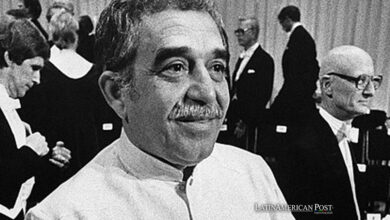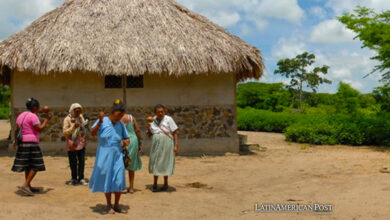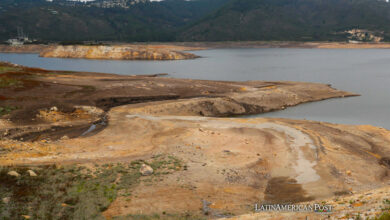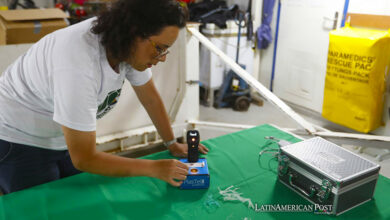Irene Vélez Torres: The Philosopher That Will Be the Minister of Mines and Energy of Colombia
This is one of the most anticipated appointments in the cabinet of the new President, Gustavo Petro, as she will be in charge of leading the energy transition

Photo: TW-IreneVelezT
LatinAmerican Post | María Fernanda Ramírez Ramos
Listen to this article
Leer en español: Irene Vélez Torres: una filósofa será la ministra de Minas y Energía de Colombia
Environmental protection, climate change mitigation, and energy transition were priority issues in Gustavo Petro's campaign. The new president of Colombia, who took office on August 7, has repeatedly spoken of the need to work for climate justice and social justice, with the protection of vulnerable communities in the country. His vice-presidential formula, Francia Márquez, has in fact been one of the most outstanding social and environmental leaders in recent years in Colombia.
For these reasons, the appointments in the Ministries of the Environment, Agriculture, and Mines and Energy have caused much expectation. The three portfolios will be directed by women: Susana Muhamad, Cecilia López, and Irene Vélez Torres, respectively. The latter was the most recent appointment and, in general, has been positively reviewed by experts. However, there has also been false news about the new Minister, since she will have to lead the energy transition, which creates discomfort for large multinationals that benefit from the economy of extractivism. For example, it has been falsely said that Ecopetrol will not produce another drop of oil quickly.
However, it is true that an energy transition will be promoted, which is understood as the gradual implementation of energy production and consumption models that are more sustainable, respect the environment and respect the human rights of the communities that are in the areas of extraction. Gustavo Petro expressed that: "She is a woman with extensive experience in the environmental sector and who will have the arduous task of leading the transition to a non-extractivist economy."
According to the Observatory of Extractive Industries, the contribution of the extractive sector to the national GDP was 5.6% in 2019 and Colombia's commitment to attract foreign capital has had a strong focus on mining and hydrocarbons. For this reason, it is a transition that must be well planned in economic matters. This, taking into account the moment of post-pandemic global crisis, economic uncertainty, and energy instability in the great powers, influenced by the war in Ukraine.
We recommend you read: She is Susana Muhamad, the new Minister of the Environment of Colombia
Who is Irene Velez Torres?
The new Minister of Mines and Energy, who will replace the economist Diego Mesa Puyo, is a philosopher and has a master's degree in Cultural Studies from the National University, and a PhD in Political Geography from the University of Copenhagen. She is a full professor at the Universidad del Valle and has extensive experience as a researcher. However, she has also worked in organizations that promote climate justice and as an advisor to the Mayor's Office of Bogotá. She has also been part of various audiovisual productions with a social focus. In 2020, her short film "Under fire" received the award for best documentary feature film at the International Film Festival for Human Rights.
She has carried out various postdoctoral and research stays at different universities and institutions such as the University of Coimbra, in Portugal; the Institute for Social Studies in The Hague, the Netherlands; Clemson University, in the United States, or Loughborough University in Great Britain. This reflects her extensive academic experience, which has focused in recent years on the health, environmental and social impact of mining, hydrocarbons, agriculture, monocultures, and the impact of the armed conflict on the environment in Colombia.
Within the academic community, her appointment has been well received. In fact, several researchers promoted an initiative to collect signatures on Change.org, addressed to President Gustavo Petro, so that she could be considered as Minister of Science. The statement said: "We have seen Irene working hard as a researcher with indigenous Amazonian and displaced communities in Bogotá, in her undergraduate and master's theses; with Afro-descendant mining communities in Cauca in her doctoral thesis, and her most recent inter and transdisciplinary research with peasant communities, coca growers and rural women. Her research and teaching work has engaged her in the analysis of destructive interventions, violence, and environmental suffering caused by the cane industry, illegal mining, and monoculture of the leaf. Coke".
The new Minister thanked the appointment on her Twitter account and emphasized that she will work for the communities and for the care of the "Big House". She herself has defined herself as an activist, critical of environmental and agrarian conflicts in Colombia.




